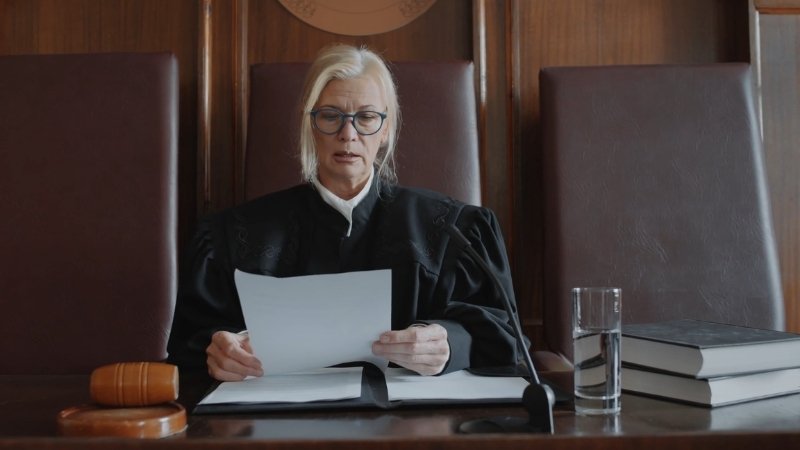Courts classify offences based on their severity and legal consequences, determining if an accused person can settle charges through compromise or if a full trial is mandatory.
A compoundable offence allows the victim and the accused to resolve the matter through mutual agreement, often leading to case dismissal. On the other hand, a non-compoundable offence is a serious crime that demands a trial, ensuring justice is served without negotiation.
The Indian Penal Code (IPC) and the Code of Criminal Procedure (CrPC) Section 320 define which offences fall under each category.
This guide breaks down what compoundable and non-compoundable offences mean, their legal implications, examples, and how courts handle them.
Main Features of Compoundable and Non-Compoundable Offences

Criminal law does not treat all offences the same way. Some crimes allow settlements, while others demand full legal action.
- Compoundable offences – Can be settled between the accused and the victim, sometimes requiring court approval.
- Non-compoundable offences – Too serious to be resolved by settlement. These require a full trial and legal consequences.
A simple dispute does not need the same legal process as attempted murder. The Indian Penal Code (IPC) and Code of Criminal Procedure (CrPC) provide clear guidelines for handling each type.
The justice system distinguishes between minor offences that allow reconciliation and serious crimes that require strict punishment.
Legal Basis: What Does the Law Say?
The Criminal Procedure Code (CrPC) Section 320 defines which offences can be settled and under what conditions.
Offences That Do Not Need Court Permission to Settle
- Minor cases like defamation, trespassing, or causing slight injury.
- The victim and accused can resolve the issue privately.
Offences That Require Court Approval
- More serious cases like theft, criminal breach of trust, or assault with intent to outrage modesty.
- The court ensures that the settlement is fair and does not involve coercion or illegal influence.
Non-Compoundable Offences: No Settlement Allowed
- Crimes like murder, kidnapping, or corruption.
- The State prosecutes the case to ensure justice, even if the victim wants to withdraw.
The legal system ensures that minor cases do not overburden courts, while serious crimes get the strict legal action they deserve.
If an offence is non-compoundable, the accused may still seek bail for a non-bailable offence when the law allows exceptional relief.
Key Differences – When Can a Case Be Settled?

| Factor | Compoundable Offences | Non-Compoundable Offences |
| Nature | Less serious crimes | Serious and grave crimes |
| Can Charges Be Dropped? | Yes, with or without court approval | No, must go to trial |
| Who Files the Case? | Private individual | The State (government) |
| Examples | Defamation, trespassing, theft (with approval) | Murder, kidnapping, terrorism |
| Court’s Role | May approve settlements | Ensures fair legal trial |
If an offence impacts society and poses a serious threat, it cannot be settled privately. The law takes control to ensure justice is served.
Examples of Compoundable Offences
Not all crimes need a full legal trial. Some allow settlements, either directly between the parties or with the court’s approval.
Common Compoundable Offences (No Court Permission Needed)
- Defamation – Wrongful damage to someone’s reputation.
- Trespassing – Unlawfully entering another person’s property.
- Causing Minor Harm – Physical injury without serious consequences.
Compoundable Offences That Require Court Approval
- Theft (Section 379 IPC) – Petty theft cases can be settled if the court allows it.
- Criminal Breach of Trust (Section 406 IPC) – When entrusted property is misused but not severely.
- Assault on a Woman (Section 354 IPC) – Courts ensure settlements are not forced in sensitive cases.
Why Are These Offences Compoundable?
They do not cause significant harm to the public. The victim and accused can reach an agreement, saving court time and resources.
Examples of Non-Compoundable Offences

Some crimes are too serious to allow settlements. These offences have a direct impact on society, making legal punishment mandatory.
Crimes That Cannot Be Settled
- Murder (Section 302 IPC) – No compromise can undo the loss of life.
- Kidnapping (Section 363 IPC) – The law ensures strict consequences for abducting someone.
- Corruption (Section 409 IPC) – Public servants cannot use their position for personal gain and then settle privately.
Why No Settlement?
- The victim is not the only affected party – These crimes impact society.
- Legal punishment acts as a deterrent – Allowing settlements would encourage criminal behavior.
- The State prosecutes the case – Even if the victim wants to withdraw, the law continues prosecution.
When Can a Court Approve or Deny Compounding?

Not every compoundable offence gets an automatic settlement. Courts evaluate multiple factors before approving a compromise.
When Courts Allow Compounding
✔️ The case is a minor offence with no lasting harm.
✔️ The victim is genuinely willing to settle without external pressure.
✔️ The accused has no prior criminal record.
When Courts Deny a Settlement
❌ The accused has a history of repeating similar crimes.
❌ The settlement appears forced, coerced, or influenced.
❌ The crime impacts society (e.g., public fraud, crimes against women).
Legal Consequences of Each Type of Offence

The way the law handles a case depends on whether the offence is compoundable or non-compoundable. If an offence is compoundable, the accused gets the chance to resolve the matter through a settlement.
Once the victim agrees to drop the charges and the court, if required, approves the settlement, the case is closed. No further legal action is taken, and the accused walks free.
Things are different for non-compoundable offences. These cases cannot be dismissed based on a private settlement, no matter how much the victim wants to withdraw. A full legal trial takes place, and the court delivers a final judgment.
If the accused is found guilty, they may face imprisonment, fines, or both, depending on the severity of the crime. Courts follow strict legal procedures to ensure justice is served, even if a victim decides they no longer want to pursue the case.
A theft charge, for example, might be settled if the court finds it appropriate. However, a charge like attempted murder or kidnapping cannot be negotiated. The law ensures that serious crimes do not go unpunished, even if the victim is willing to forgive the accused.
Why Some Offences Are Non-Compoundable?
Some crimes are too serious to allow private settlements. The law treats them as matters of public interest because they affect more than just the victim. When a crime like murder, corruption, or violent assault happens, it does not only harm one individual—it threatens society as a whole.
Imagine a scenario where a wealthy and influential person commits a serious crime. If that crime were compoundable, they could simply pay off the victim and walk free.
This would encourage criminals to manipulate the system and escape punishment. That is why the law steps in and makes certain offences non-compoundable.
Another reason why non-compoundable offences cannot be settled privately is deterrence. Strict laws exist to discourage people from committing serious crimes.
If someone knew they could bribe or negotiate their way out of legal trouble, the fear of punishment would disappear. By making crimes like kidnapping, terrorism, or large-scale fraud non-compoundable, the legal system ensures accountability.
A murder case, for example, cannot be settled by the victim’s family accepting compensation from the accused. The law must take control and impose a fair judgment, ensuring that the punishment fits the crime.
Conclusion
he justice system needs a balance between resolving minor disputes efficiently and enforcing strict punishment for serious crimes. If every case had to go through a full legal trial, courts would be overwhelmed with cases that could have been settled easily.
At the same time, if all crimes could be settled privately, justice would be compromised.
That is why compoundable offences exist. They help save time and resources for cases that do not pose a major threat to society. When both parties agree and, in some cases, when the court approves, the matter can be resolved without a long legal process.
This prevents minor disputes from clogging up the courts and allows people to move on without unnecessary legal complications.
Non-compoundable offences, on the other hand, exist to ensure that crimes with serious consequences are dealt with properly.
No matter how much influence or money someone has, they cannot simply buy their way out of legal responsibility. Courts must conduct a full trial, evaluate the evidence, and decide the appropriate punishment.

